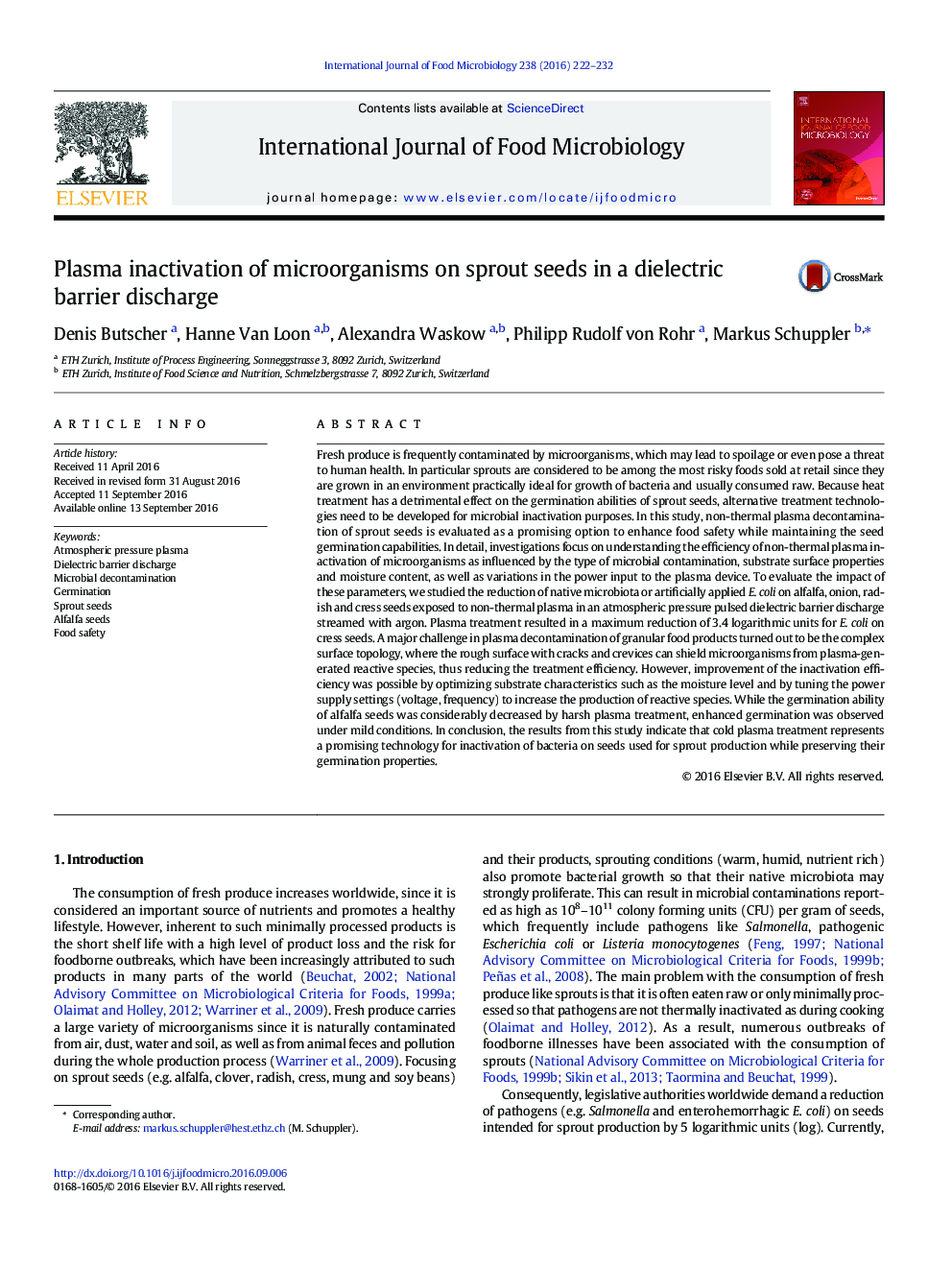| کد مقاله | کد نشریه | سال انتشار | مقاله انگلیسی | نسخه تمام متن |
|---|---|---|---|---|
| 4366137 | 1616545 | 2016 | 11 صفحه PDF | دانلود رایگان |
• Inactivation of bacteria on sprout seeds in an atmospheric pressure plasma discharge.
• Inactivation efficiency depends on substrate surface structure and moisture content.
• Inactivation improves with increase in treatment time and plasma power input.
• Inactivation is caused by plasma and not by thermal, mechanical or electrical stress.
• Germination potential of alfalfa seeds can be improved with mild plasma treatment.
Fresh produce is frequently contaminated by microorganisms, which may lead to spoilage or even pose a threat to human health. In particular sprouts are considered to be among the most risky foods sold at retail since they are grown in an environment practically ideal for growth of bacteria and usually consumed raw. Because heat treatment has a detrimental effect on the germination abilities of sprout seeds, alternative treatment technologies need to be developed for microbial inactivation purposes. In this study, non-thermal plasma decontamination of sprout seeds is evaluated as a promising option to enhance food safety while maintaining the seed germination capabilities. In detail, investigations focus on understanding the efficiency of non-thermal plasma inactivation of microorganisms as influenced by the type of microbial contamination, substrate surface properties and moisture content, as well as variations in the power input to the plasma device. To evaluate the impact of these parameters, we studied the reduction of native microbiota or artificially applied E. coli on alfalfa, onion, radish and cress seeds exposed to non-thermal plasma in an atmospheric pressure pulsed dielectric barrier discharge streamed with argon. Plasma treatment resulted in a maximum reduction of 3.4 logarithmic units for E. coli on cress seeds. A major challenge in plasma decontamination of granular food products turned out to be the complex surface topology, where the rough surface with cracks and crevices can shield microorganisms from plasma-generated reactive species, thus reducing the treatment efficiency. However, improvement of the inactivation efficiency was possible by optimizing substrate characteristics such as the moisture level and by tuning the power supply settings (voltage, frequency) to increase the production of reactive species. While the germination ability of alfalfa seeds was considerably decreased by harsh plasma treatment, enhanced germination was observed under mild conditions. In conclusion, the results from this study indicate that cold plasma treatment represents a promising technology for inactivation of bacteria on seeds used for sprout production while preserving their germination properties.
Journal: International Journal of Food Microbiology - Volume 238, 5 December 2016, Pages 222–232
